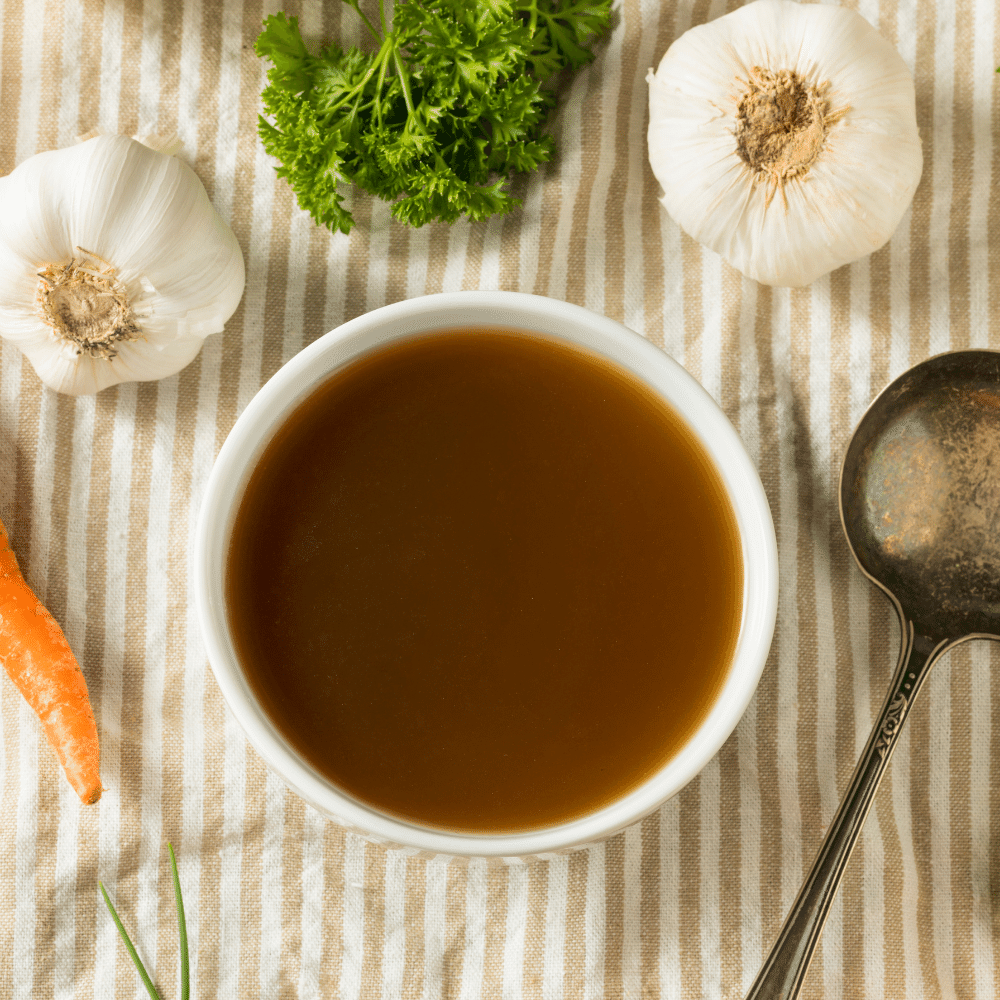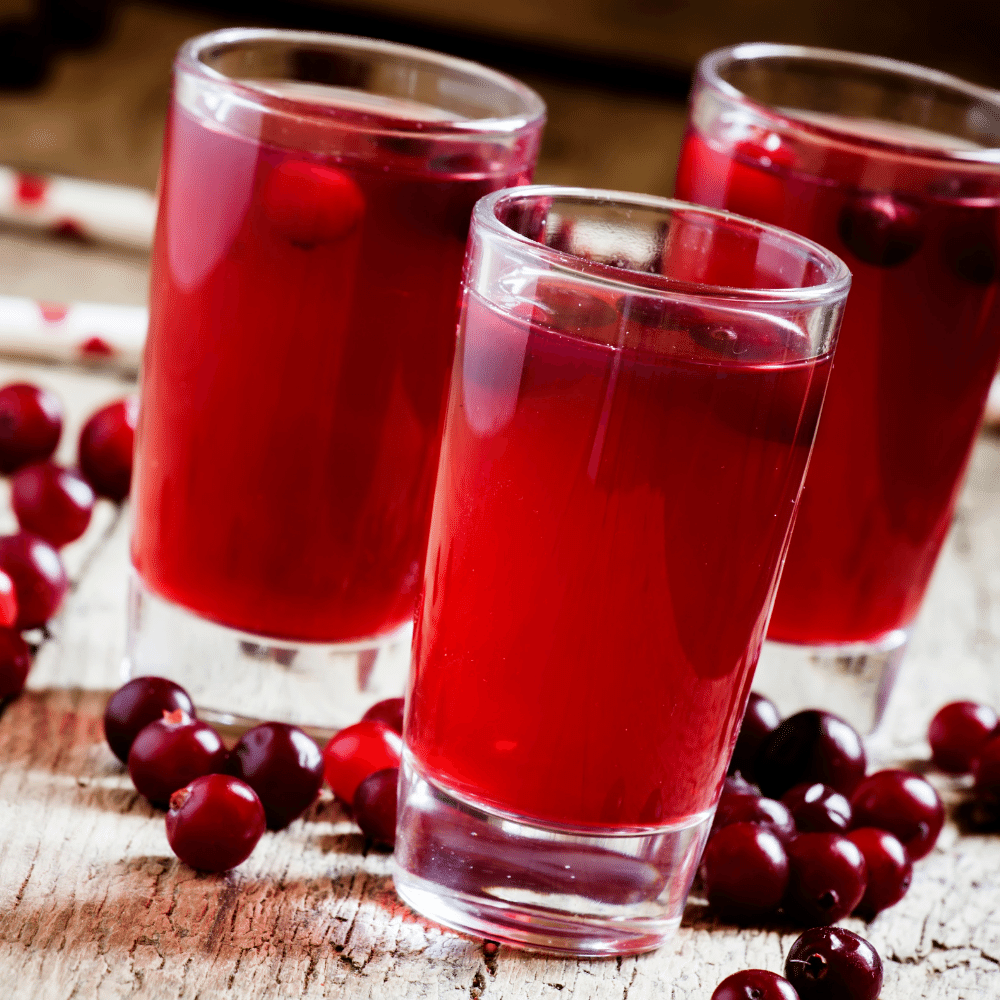If you need a substitute for red wine in Bolognese, you’re certainly not alone.
Many cooks have been in the same boat as you and found that they didn’t have any red wine on hand when it came time to prepare their sauce.
Luckily, there are plenty of options for substitutes for red wine in Bolognese and similar sauces, just as there are many reasons why a cook may not have red wine on hand.

So, what’s the best substitute for red wine in bolognese?
The most effective substitute for red wine in a bolognese recipe is to use the same amount of beef broth. Broth will provide the same flavor profile, but because it’s saltier than red wine, you may want to reduce the amount of salt you use.
Maybe you can’t drink alcohol or don’t want to keep it around the house because of children or roommates.
Perhaps you simply forgot to buy some at the store and don’t want to make an extra trip out.
Or maybe there aren’t any good wines available where you live.
No matter your reasoning, there are substitutes for red wine in Bolognese that will work just as well as red wine would.
See Also: 13 Best Substitutes for Celery in Bolognese
11 Best Substitutes for Red Wine in Bolognese
I love a good bolognese.
But sometimes I just don’t have the red wine I need to make it, and I end up making spaghetti with marinara sauce instead.
1. Broth, especially beef broth

You definitely don’t need to use red wine, but you can if you want to.
If you’re going to do it, though, I’d recommend substituting a full-bodied broth like beef broth.
This will lend your bolognese a rich flavor of umami that is similar to what red wine would provide.
If you use chicken or vegetable broth instead of beef broth, the flavor won’t be as strong and the sauce might not be as dark.
And if you want to go for a vegetarian version instead of a meat-based one?
Use vegetable broth!
2. Some fruit juice (especially apple cider or grape juice)

Here’s another option that’s great if you’re worried about making your sauce too boozy: just use some fruit juice!
Apple cider is my favorite because it really leans into the sweet side of things, making the overall flavor more balanced and sweeter than it would be with red wine.
Grape juice also works well because it is similar in color and body to red wine, so there won’t be much of a difference in appearance when you add it to your sauce, and it will only affect the final flavor slightly.
3. Sherry

Sherry is a fortified wine made from white grapes, and it has less alcohol than regular red wine so you don’t have to worry about your sauce becoming too harsh.
Sherry comes in different varieties and strengths, so you’ll want to choose one that’s appropriate for cooking.
The best sherry to use in bolognese is a fino, which tends to be lighter and more delicate in flavor than other types of sherry.
If you can’t find fino, though, don’t sweat it; amontillado will also work well.
4. Coffee

Coffee adds a deep, distinct flavor to your sauce—and it’s not as weird as it sounds.
The coffee needs to be brewed strong and dark; I recommend using a French press.
You can also choose the type of coffee depending on the flavor profile you’re going for; I like to use an espresso roast or a dark roast.
If you want to make sure that the coffee doesn’t overpower the sauce or have a bitter aftertaste, use decaffeinated coffee.
5. Chocolate

Red wine has a lot of tannins in it, which are one of the reasons that some people like it so much!
These tannins add a bit of bitterness and astringency to whatever they’re added to, and chocolate is full of them!
Chocolate can also add a richness that red wine does not have—and if you choose milk chocolate over dark chocolate, your sauce will be slightly sweeter.
6. Brandy

I know, it sounds weird to put brandy in a bolognese sauce, but trust me, it works!
And it works well! I suggest using about 1/3 to 1/2 cup depending on how strong you like the flavor.
It’s a bit more potent than red wine, so keep that in mind when adding it to your sauce.
7. Vinegar

I love this substitute because it’s so easy to use, and it’s a great way to add a tangy dimension to your bolognese.
When you’re cooking your bolognese and you get to the point where you would normally add the wine, take out the vinegar.
You can use white vinegar or red-wine vinegar if you have it—just remember that red-wine vinegar will have a stronger taste than white vinegar, so feel free to adjust the amount you use accordingly if you’re using red-wine vinegar.
Take about 1/2 cup of vinegar and pour it in slowly.
I recommend pouring in about half of the vinegar first, then tasting your bolognese again to see how it’s affected by the change in flavor. If you want more vinegary tang, then go ahead and add more!
You can always adjust the amount of vinegar until your bolognese tastes just right.
You might be surprised how much that little bit of tang can impact your food.
Take a new look at everything from chicken parmesan to stir fry with this added dimension of flavor!
8. Port wine

Port wine is a fortified wine that’s sweeter than red wine and has a deeper color.
It’s made using the same grape varieties as red wine, but it’s more concentrated.
This is due to the fact that brandy is added before fermentation is complete, which means less water remains in the mixture.
9. Cranberry juice

Another great substitute is cranberry juice.
You can use fresh or bottled cranberry juice here—just make sure that it’s unsweetened!
Cranberry juice will add a slightly tart tone to your sauce, but if you’re worried about it being too strong, consider adding some orange juice as well.
It will help balance the flavor and add a little brightness.
10. Ginger beer

Ginger beer contains all of the sweet and spicy flavors of ginger, but with an added kick of carbonation.
This makes it a perfect alternative to red wine in your bolognese—the surprise fizziness works really well with the earthy flavor of tomatoes.
11. Peach nectar

If you have a bit of extra time on your hands, this is a great option for replacing the red wine in your bolognese sauce—but only if you have at least a couple hours to let it simmer on the stove and develop its full flavor.
The sweetness of peaches goes surprisingly well with the flavors in tomato-based sauces, so you won’t be able to taste much difference at all!
Why Substitute for Red Wine in Bolognese?

I know. I know.
You’re thinking that if you don’t add red wine to your bolognese, it’s not going to taste the same.
But let’s think about this—there are two reasons why you might consider substituting the red wine in your sauce:
1. Red wine is not for everyone
Maybe you don’t drink alcohol, or maybe you’re avoiding it while trying to get pregnant. Maybe you’re a recovering alcoholic and red wine is a trigger.
Or maybe you just don’t like the taste of red wine!
Whatever reason you have for avoiding alcohol, there’s no need to skip the bolognese altogether!
2. You can add some new complexity to your sauce
Substituting other wines or liquors is a great way to get an even deeper level of complexity in your dish.
Wine brings into play so many flavors that you might not be able to get otherwise, so using substitutes will broaden the scope even further!
Have you ever thought about what kind of sauces a brandy-based bolognese could go well with?
Or how about chicken roasted with a port-based demi-glace?
The possibilities are endless!
Final Thoughts
If you’re substituting, please don’t use any old bottle of plonk from the supermarket shelf. You will be wasting your money and your time.
Cheap wine is almost invariably made for drinking immediately or very soon after purchase.
It may taste all right to drink, but after cooking, you will find that the alcohol has been cooked off, but most of the other flavours have not been transformed and improved by cooking.
You will end up with a sauce that tastes like alcohol with a bit of tomato added.

11 Best Substitutes for Red Wine in Bolognese
Ingredients
- Broth, especially beef broth
- Some fruit juice (especially apple cider or grape juice)
- Sherry
- Coffee
- Chocolate
- Brandy
- Vinegar
- Port wine
- Cranberry juice
- Ginger beer
- Peach nectar
Instructions
- Pick any of the alternatives from this list to use in your sauce.
- Prepare the rest of your ingredients.
- Be ready to munch in no time!
Hi, I'm Benjamin. I love cooking, long walks, and my girlfriend! Here you’ll find simple and delicious recipes that you can make in 30 minutes or less.

